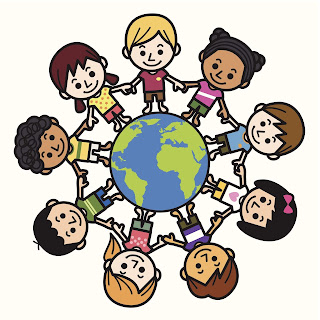Youth Work Is... Care
For this post I focused on the content of the article "Nice is Not Enough" by Sonia Nieto. I had some views of "care" in youth development that were challenged by this reading. Before I would have defined "care" for youth as meeting their basic needs like food, water, rest and clothing. I would also include giving them affection, encouragement and love. This reading showed me that there is a lot more to the idea of care than I previously thought. The author focuses on unintentional racism from teachers in this article, but I think that some of her arguments and ideas can be applied to care of youth in general.
One idea related to "care" in youth development was treating all students equally. Part of caring for children is pushing them to develop appropriately and to succeed. I thought the author made a good point that sometimes teachers do not treat students equally or expect the same that they do other students. This doesn't happen on purpose, but is something that we do subconsciously. The article talks about this in regards to race, but I think that there are other reasons that this may happen as well. From my experience being a teacher in early education, I can say with confidence that each child is different. It is important to use their strengths to help them develop well and to make sure that you're not expecting things of them that they can't do, but also I think it is important not to lose sight of making sure they are treated the same and held to the same standards as all the other children. For instance, if there is a child who is very poorly behaved, I don't think that this child should be held to different rules than a child who is well behaved. Sometimes when teachers are frustrated or out of patience, they can let some children get away with more than others. This is an example of treating students differently, and it does not benefit the children. This made me realize that it is extremely important to focus on treating students equally not just because it is fair, but also because it is important for their development.
Before reading this, I would have defined "care" and treating students equally as just that, treating all students equally, fairly and kindly. This article presented a different recipe for equal treatment in the classroom, saying that what is needed is an "ethic of care" that includes a combination of "respect, admiration, and rigorous standards." This helped me realize that there is much more that goes into equality than just trying to be equal. On the surface that seems like all it takes, but it is more complicated than that. It takes effort to make sure we are doing the right thing and helping all of our students succeed regardless of how different they are from one another.





After writing my blog post, reading the article again, then reading yours and looking up the terms "equally", "fair" and "equity" I realized theres a lot more to it then treating someone as equal. Equal isn't always best because everyone has different needs but treating them fair, giving them the same opportunities and resources might be better. Btw i like the pictures you chose!
ReplyDeleteThanks for your post Alyssa. And yes, I want to second Andreya's comment about the distinctions between equality and equity. I think Nieto is urging us to hold all youth to high standards, but that doesn't necessarily mean treating folks the same. Equity is about leveling the playing field, so that if susie doesn't have enough to eat at home, you might offer her some extra sandwiches to bring, but if jojo doesn't struggle with food insecurity, then you don't need to offer extra food to them. Does that make sense? I think part of what Nieto is advising is deep reflexivity on the part of us as educators.
ReplyDelete